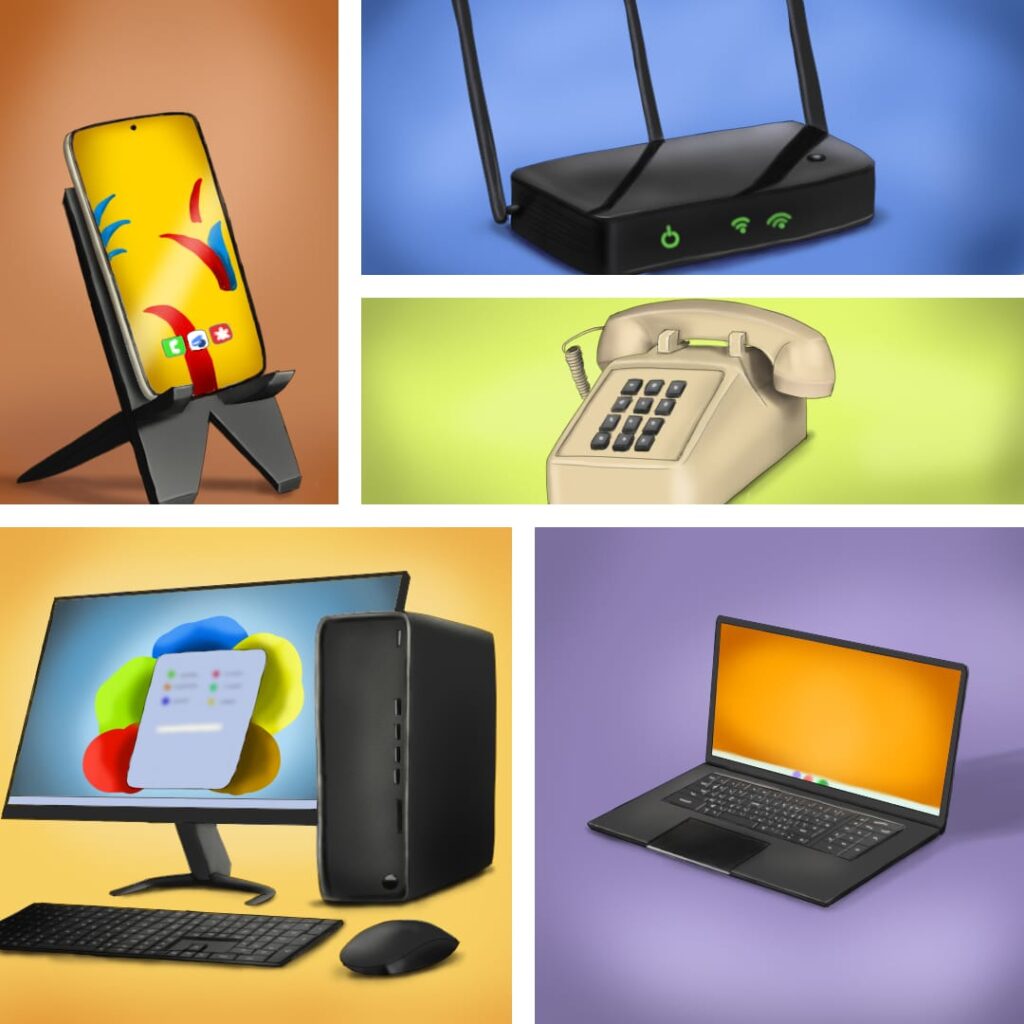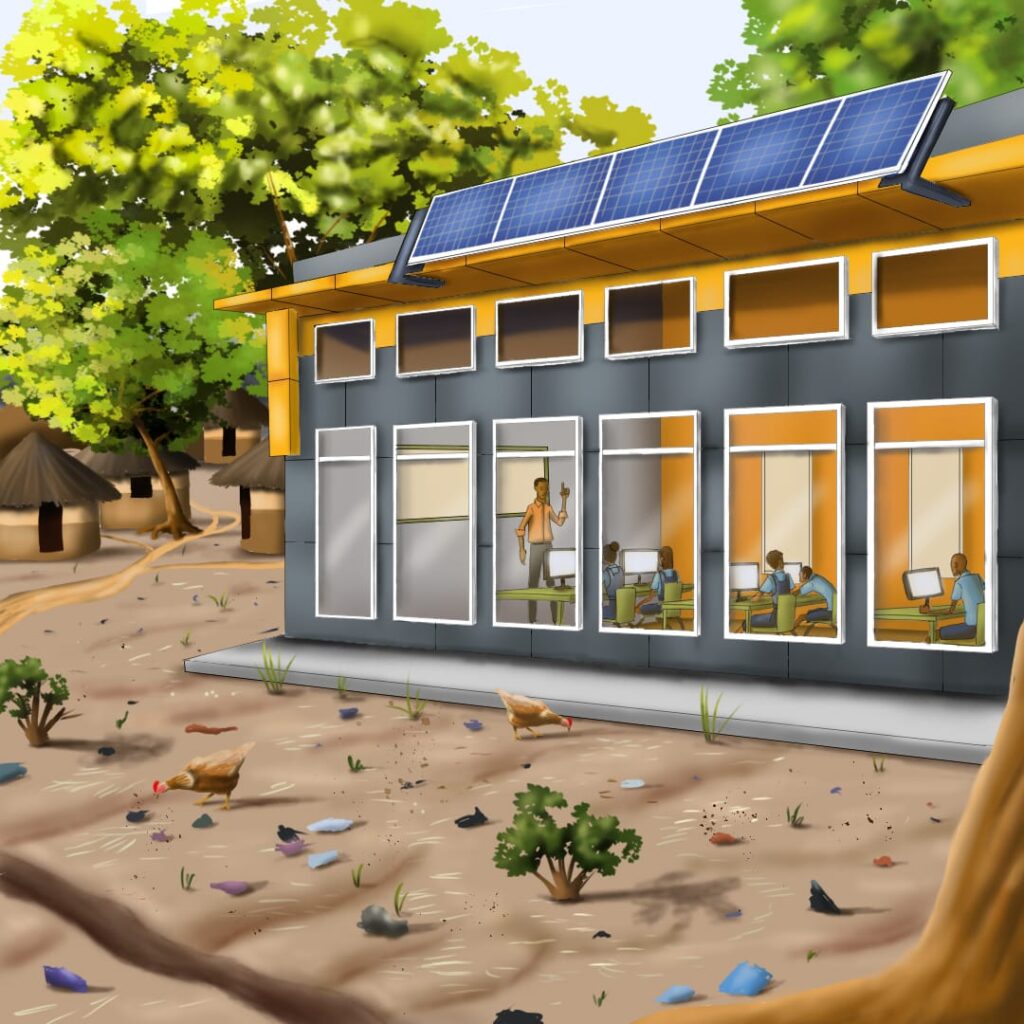The current digital divide in Africa especially in the education sector is at an alarming rate with the Punch newspaper publishing that as at 2022, only 23 percent of individuals in rural areas have access to the internet, as at the 17th October 2023, the UNESCO (United Nations Educational, Scientific and Cultural Organization) recorded an increase, from 24 percent to 36 percent of Africans having access in both rural and urban areas and that should be looked into.
The importance of technology in education include better learning experience and a broader view of life.
There is a need for innovative and unique solutions to ensure that there is equitable access for all students, especially in remote and underserved areas like villages.

CHALLENGES POSED BY THE DIGITAL DIVIDE IN AFRICA
- Limitations of Infrastructure: There has been problems of having the required infrastructure like power lines, transformers, telecommunication equipment. They are needed to address the digital divide especially in rural areas in Africa.
- Unreliable Electricity and Power supply : A lot of African countries face the issue of epileptic power supply and this has become a hindrance to bridging the digital gap.
- Inadequate access to Internet Facilities and Devices in remote areas: Many remote areas do not have access to Internet Facilities like cyber cafes, routers, that can access the internet etc. This is caused by scarcity of stores where they are sold.
- Poverty and High-priced Internet access, Devices and Data plans: The prices of devices such as phones, data routers and computers are on the high side. It makes them difficult to access. Unlike the developed countries where there are infrastructures that allow for free WiFi access.
- Lack of maintenance culture : We do not maintain most equipment and structure, if present. Many communities are not carried along in the setting up of such infrastructure and in maintaining them. Also, the issue of lack of technical knowledge in repairs and maintenance is part.
- The plague of digital illiteracy and inadequate content: Many schools do not have teachers that are knowledgeable in the aspect of digital literacy. Also, such facilities are not available, so they are not included in their curriculum.
HOW DO WE PROFFER UNIQUE SOLUTIONS TO PROBLEMS POSED BY THE DIGITAL DIVIDE IN AFRICA ?

- Harnessing content creation to promote digital literacy: We should use social media platforms such as Facebook, Instagram. They can serve as platforms for creating content. In cases of promoting digital literacy, online classes in form of video and written content.
- Implementing programmes targeted at Device distribution and maintenance.
- Use of alternative solutions.
HOW DO WE ENSURE SUSTAINABLE AND IMPACTFUL SOLUTIONS?
- Policy and Regulations: The government has a huge role to play in ensuring this.
- Harnessing community ownership and participation: We should involve local communities. In areas, especially in participation and setting up will ensure sustainability.
- Proper Monitoring and Evaluation of prospective programmes and projects: Evaluation and monitoring cannot be overemphasised. Especially on a yearly or quarterly basis to check whether or not goals are met.
- Pushing for funding and international cooperation to deal with the issues: International Cooperation is one of the means to push impactful solutions e.g funding which is one of the many issues.
IN CONCLUSION
It is important that we re-emphasize that there is a need to bridge the gap posed by digital divide. This is to ensure that students in remote and underserved areas are given an equal chance at digital learning. There has been praiseworthy contributions especially from the World Bank in a lot of areas but a lot has to be done for us to reach our goal.
The sky is not so gloomy and the future seems bright if everyone works together in addressing the digital divide in education in Africa.

7 Responses
This is a very insightful piece. Well done.
Nice work. Well done!
Thank you. I’m grateful
The bulk of the responsibility lies on the government to proffer solutions to this problem. Well articulated.
Actually but we should not overlook our own efforts too
Quite insightful.
Thank you very much 😊.